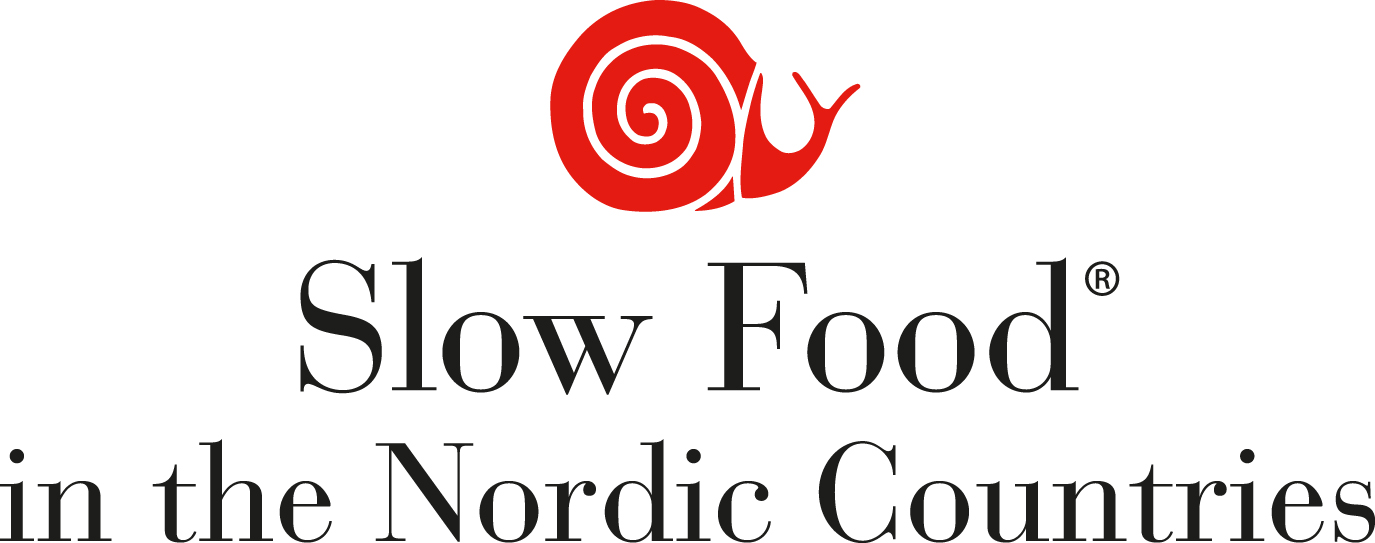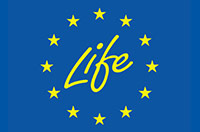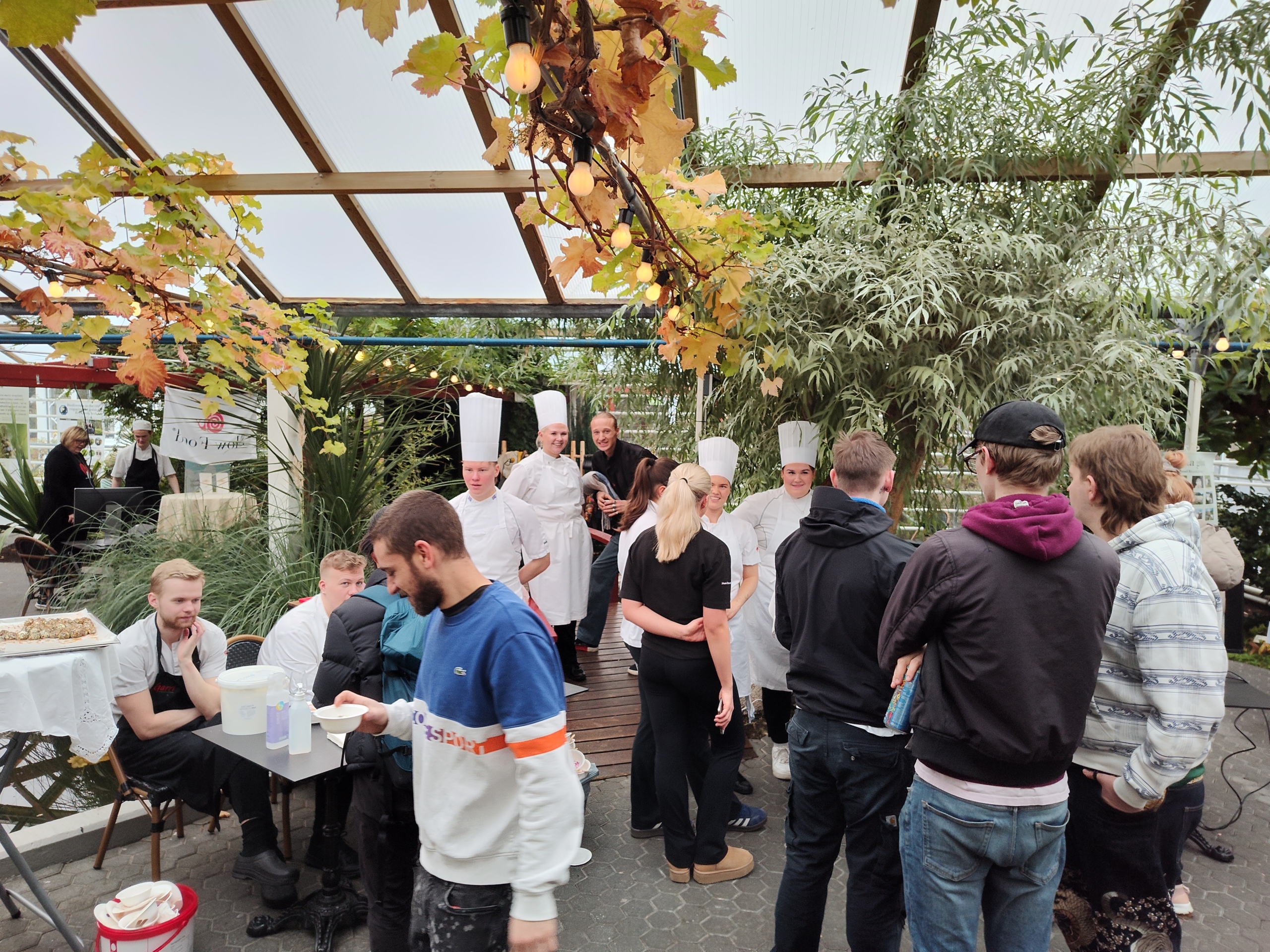
In October, Slow Food Reykjavik hosted the second edition of the event BragðaGarður, Taste Garden in Icelandic. The food festival gathered hundreds of students, farmers, producers, and visitors to lectures, workshops, and a farmers market.
The festival is a two-day event with lectures and workshops on Friday and a food market on Saturday. Dóra Svavarsdóttir is one of the Slow Food activists behind the festival arrangements. She describes the event as a way to share food education and gain more visibility for the Slow Food movement in Iceland.
“The inspiration for BragðaGarður comes from Terra Madre. This year, we wanted to add an educational dimension to the event, so we involved culinary students in the arrangements”, Dóra says.
The event is made possible entirely by volunteer work by the board and members of Slow Food Reykjavik. The event was also partly funded by a grant from the Icelandic Ministry of Food, Agriculture and Fisheries.
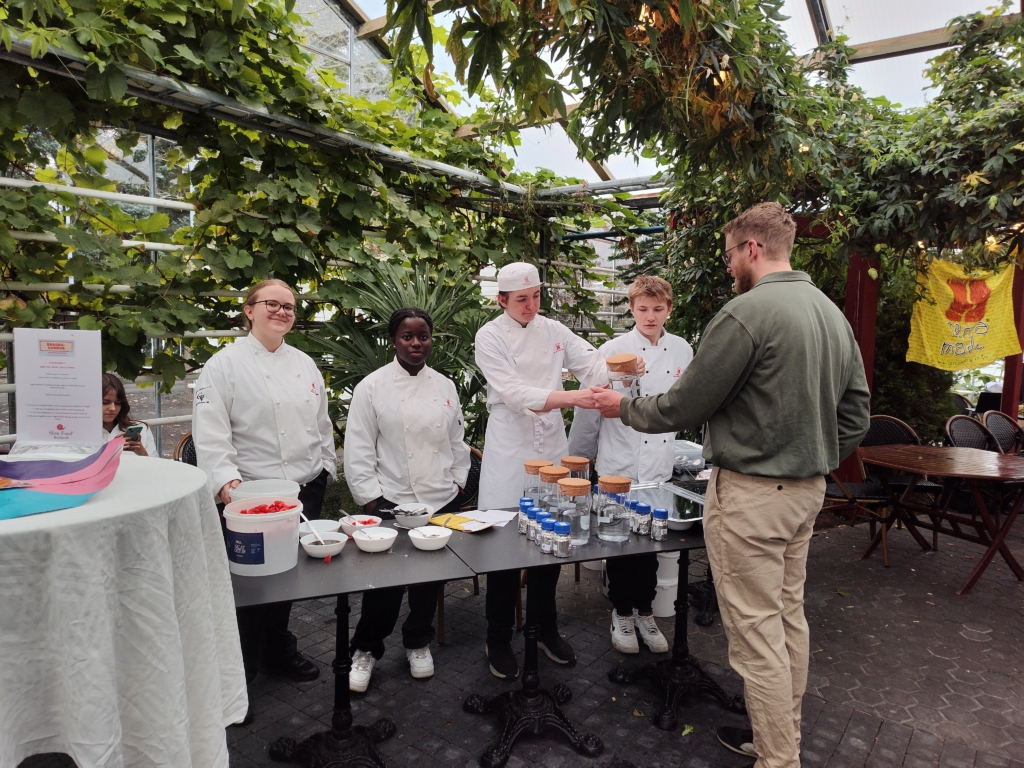
Food Education & Herbal Cocktails
The event started on Friday, focusing on food education, talks, and workshops. Over 200 students and teachers visited.
Students from the Culinary School of Iceland served herbal cocktails and tastings of Icelandic goat meat prepared in various ways. They also served skyr used in innovative ways and promoted potatoes and the many different varieties. The Horticultural Society taught people how to grow their food, and young farmers shared experiences about their work. Biodiversity was showcased with a large variety of potatoes and tomatoes grown in Iceland.
“We want to educate young people about where our food comes from and also allow small-scale producers to sell and talk directly to customers,” says Dóra.
Visitors could also enjoy and participate in the concept of Disco Soup on Friday, highlighting food waste and how it can be prevented. A fun event element was an escape room activity, where students could try to save a Slow Food chef who had locked himself in the freezer.
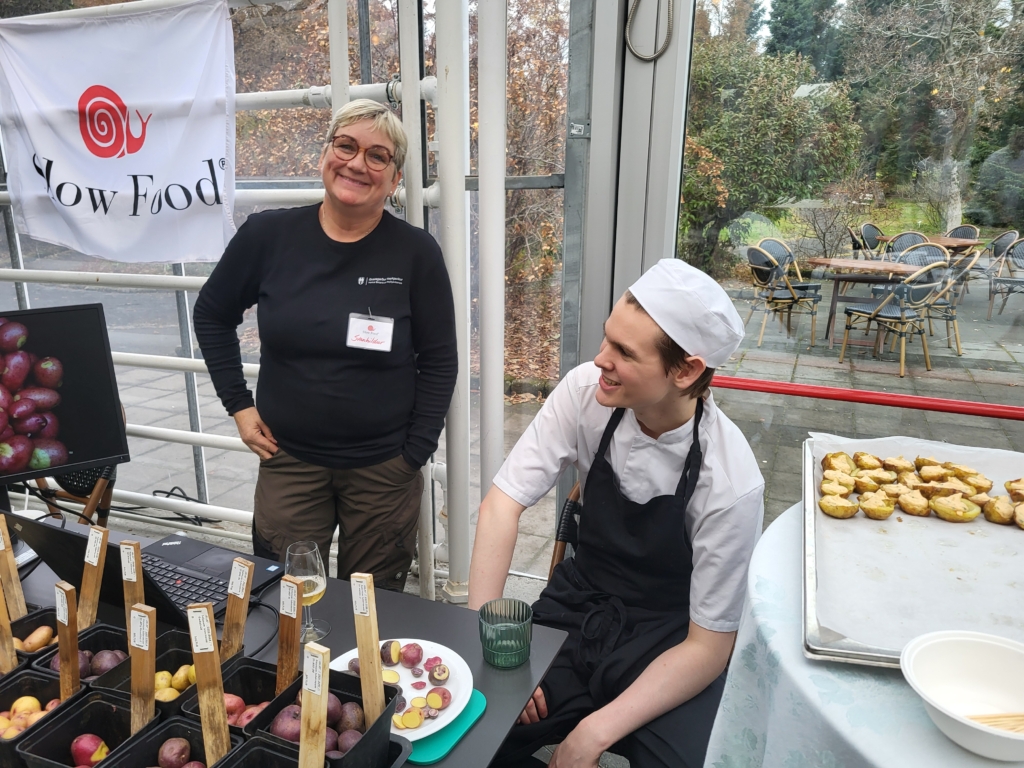
Events are a Way to Engage New Members
Like many other Slow Food groups in the Nordic countries, Slow Food Reykjavik works hard to engage new members, which is a challenging task for a non-profit organization.
“Events like BragðaGarður are the backbone of our work. It is a way to reach out to people from all over society and get new members. Slow Food Reykjavík is dealing with the problem of fewer paying members like many other networks”, states Dóra.
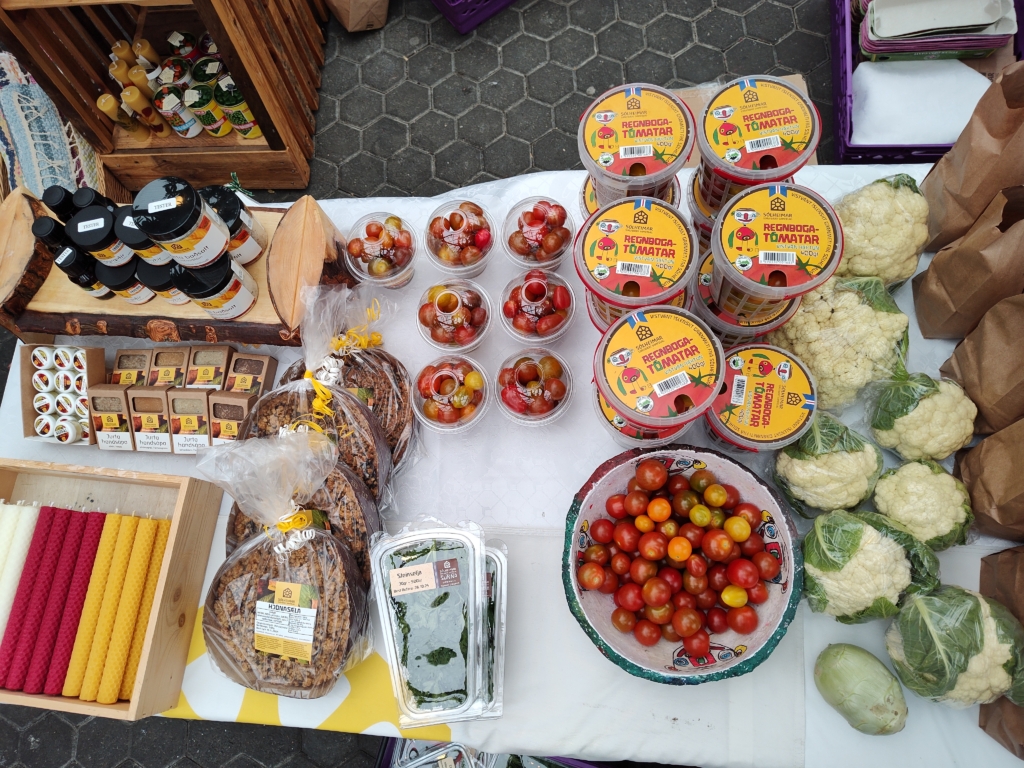
On Saturday, the educational part of the event was followed by a food market. Small food producers offered their products, and the over 300 visitors could also listen to talks and discussions on topics such as community fridges, food origin labeling, different ways to use mushrooms, and how to live off the land.
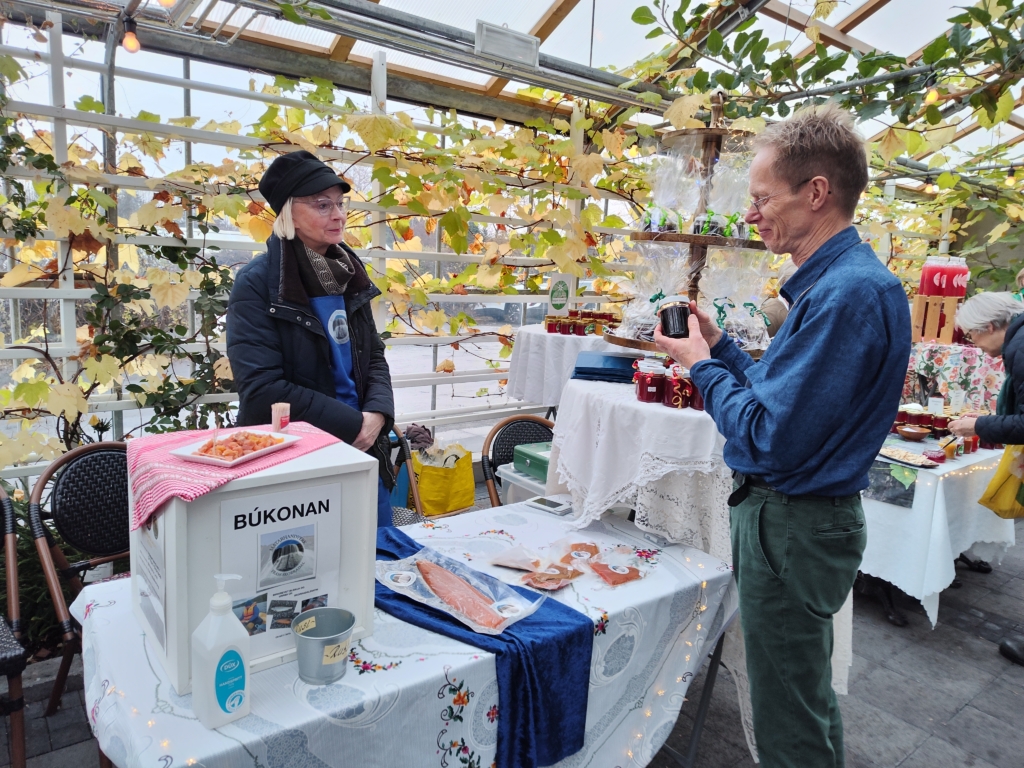
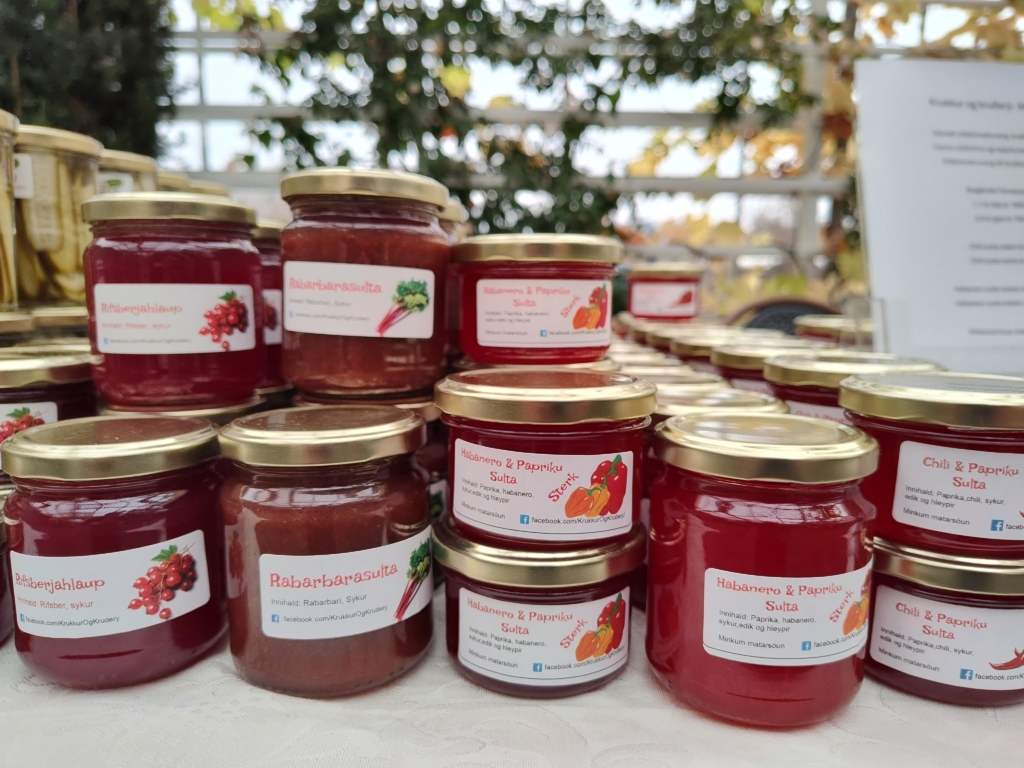
Collaborations a Means to Grow as a Convivium
Dóra sees a bright future for the Slow Food Reykjavik convivum.
“Young people respond to our message very well. We have many ideas and are ready to execute them as long as we have the workforce and energy to do so”, she says.
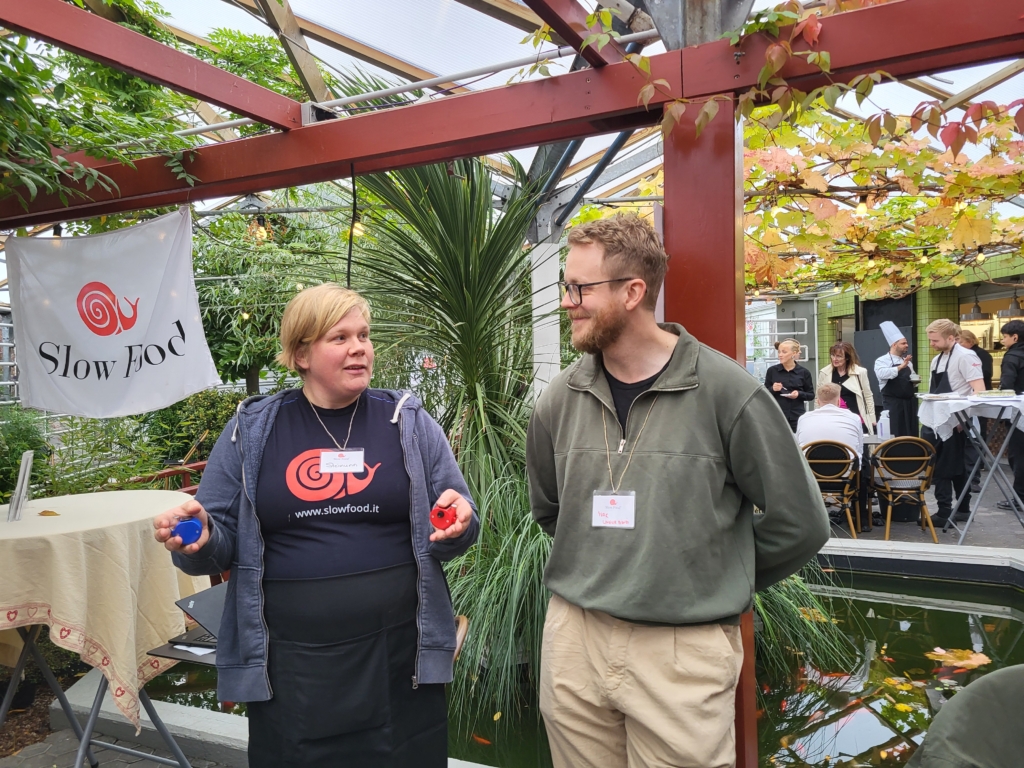
Dóra hopes to reignite the Slow Food Youth Network in Iceland to reach even more young people. Other plans for the future involve more events in the countryside and collaborations with other nonprofit organizations, schools, universities, and the Slow Living movement in Iceland (Hæglætishreyfingin).
“Collaboration gives us a chance to grow and spread the word of Slow Food,” says Dóra.
